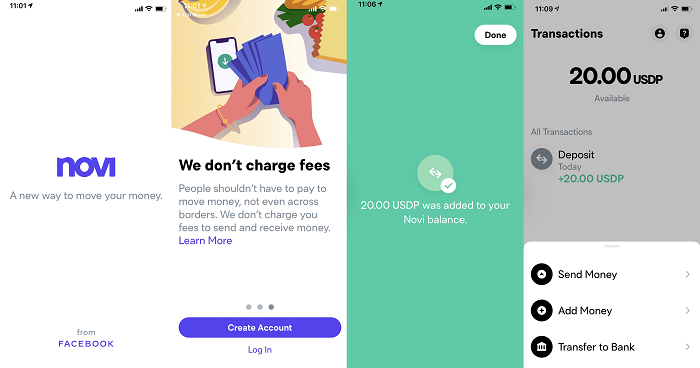SOCIAL
Meta’s Crytpo Project Loses Top Executive, the Latest Blow for the Company’s Digital Payments Push

Meta’s troubled cryptocurrency project has been dealt yet another blow, with top executive David Marcus, formerly of PayPal, announcing that he will be leaving the company at the end of the year.
As reported by Bloomberg, Marcus is leaving Meta to pursue entrepreneurial opportunities, and explore other passions outside the organization:
As per Marcus:
“While there’s still so much to do right on the heels of launching Novi – and I remain as passionate as ever about the need for change in our payments and financial systems – my entrepreneurial DNA has been nudging me for too many mornings in a row to continue ignoring it.”
Marcus will be succeeded by former UpWork CEO Stephane Kasriel as the head of the Novi project, which, as noted, is still far from gaining significant traction as a payment option, despite being launched with much fanfare almost two and a half years ago.
Initially announced as ’Libra’, Meta had hoped that it could introduce a native digital payment system within Facebook which would eventually power eCommerce, and broader transactions, to help make it a more critical utility for more users around the world.
The big focus in this sense seemed to be India, where Meta has been working to build its presence, and tap into the emerging digital eco-system of the world’s second-most populous nation. Now Facebook’s biggest user market, further establishing its presence within the Indian tech shift could make Meta a critical provider, facilitating a wide range of functionalities in the region, including, importantly, remittance transfers, with India seeing more remittance transactions than any other nation.
Those transactions cost money, with financial providers charging for each transfer, and Meta saw this as a way to maximize take-up of its free crypto-based transactions, which would then see Indian users moving more money through its systems, which would in turn make it easier to encourage them to undertake more payments and purchases in its apps. If you already trust Meta with remittance, it becomes less of a leap to evolve into more transaction types, which was the key promise of the Novi project, and the biggest impetus behind the company’s push.
But then, shortly after the Libra project was announced, Indian officials ruled out any hope of a Facebook currency operating within its borders. That was a first key blow for the project, which then lost the support of various payment providers and officials, and seemed destined for failure, due to both resistance to digital payments, and to Meta more broadly.
Meta has since tried to re-shape the project several times, which included renaming it to ‘Novi’ in May last year, while just last month, finally, Meta moved to a live pilot test of its Novi digital wallet in the US and Guatemala, enabling users to send and receive money between the two regions.

That’s the latest big leap that Marcus refers to in his announcement. And while it is seemingly positive to see the project move to this next stage, broader concerns around cryptocurrency, and its security, especially within Meta’s tools, look set to remain an impediment for some time yet.
Indeed, various nations have moved to ban the use of cryptocurrency entirely, including China and India, while Swedish officials have called on the EU to ban crypto projects due to climate impacts around crypto mining. Research also suggests that UK citizens would also support a ban on cryptocurrencies, and while momentum grows for crypto-aligned projects like NFTs online, there is seemingly an underlying concern of a coming market crash, which will cut a hole in the current crypto bubble and erase the perceived value of these rising digital products.
In many ways, the nature of crypto communities, built largely on goodwill, has established a more inviting, and attractive avenue for crypto investment, but at a larger scale, there still seems to be significant risk in these payment systems, with limited opportunities for recourse with respect to scams and theft. As such, the view that crypto projects will benefit some of the most vulnerable communities may also be flawed, as it could equally open those same people up to broader exploitation, and while global banking systems do need to evolve, the promise of financial sovereignty remains fraught, even in a best-case application.
And this is before you consider the wider backlash against Meta, and its anti-competitive practices which it’s used to dominate the social media and digital ads markets. Few governments want to see Zuck and Co gain even more power, and as such, resistance to its digital payments project looks set to remain firm for some time yet, which could still kill off the Novi project.
Losing Marcus, and his considerable expertise and industry heft, is a significant blow in this respect, and while Meta will push on, it’ll be interesting to see if and how Novi develops throughout 2022.
